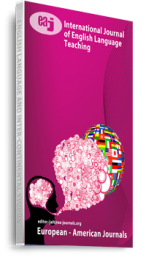Vague language is only one of the many aspects of English language. But we cannot disregard the fact that vague language plays an important part in our daily lives in communicating with others. As a matter of fact, we see no reason why we have to discourage its usage, instead we have to make a deliberate attempt to encourage all interested parties and those intellectuals to make further research leading to vague language acceptance. To be able to appreciate vague language usage we have had our goal to expound how the linguistic theories and well-founded methodology would serve its purpose. You would later realize that analysis of vague expressions showed that their meanings were themselves vague. By this, we meant that it was not possible to turn them into something precise but only for the purpose of clarification and analysis. It was not our aim to present an all-knowing solution to queries surrounding vague language but to provide better understanding that motivated even the least appreciative particular person or society to embrace its usage. There were various reasons for vagueness as vague expressions occurred more frequently in spoken English, and that some were highly unfavourd in written English. In this paper, we tried to figure out how vague language was applied in The Zoo Story, a short play written by Albee.
Keywords: Ambiguity, Co-Operative Principle, Implicatures, Imprecision, Memory Loss, Vagueness

